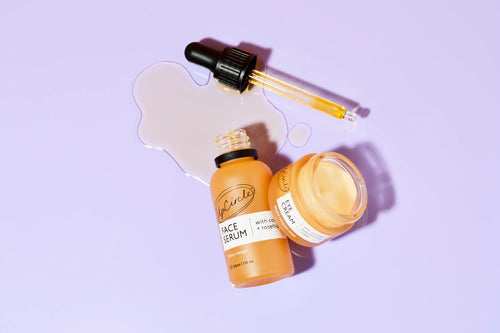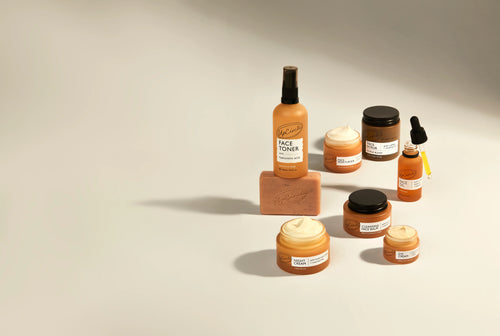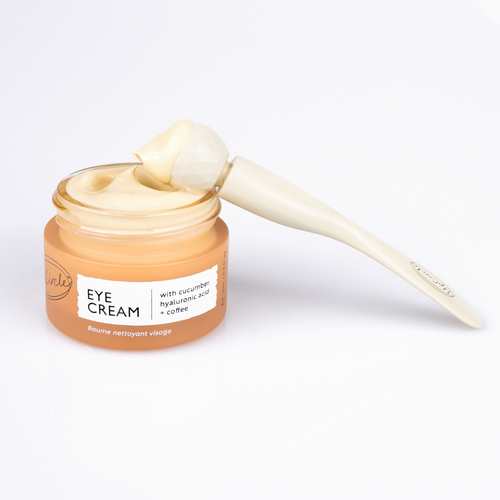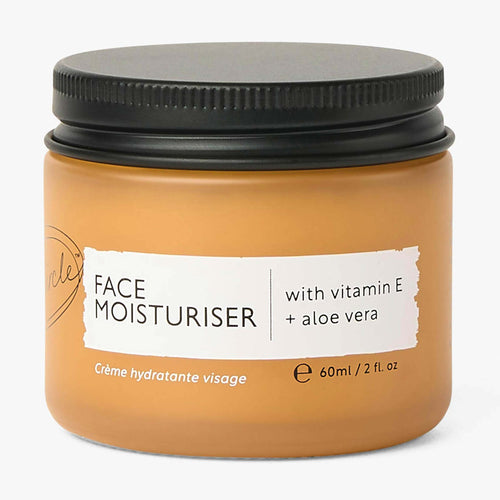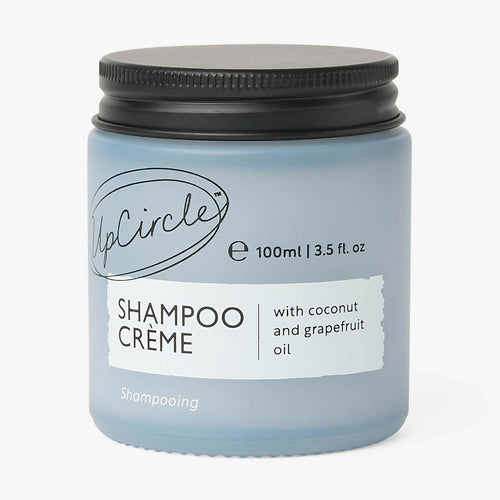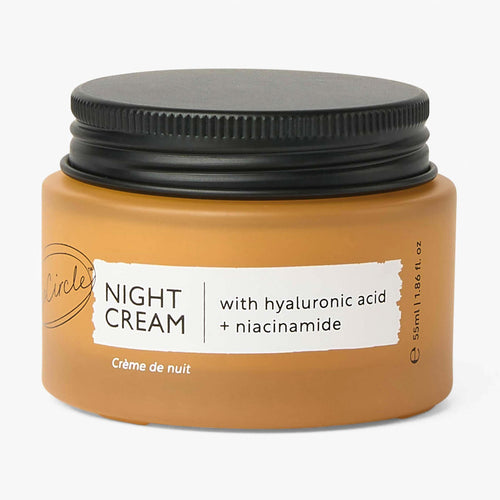If you are searching for chemical-free skincare products, then you are not alone. But the problem is: there is no such thing as chemical-free beauty and skincare products. To get a bit science-y for a second, every form of matter has a chemical composition. This means that literally everything around us is made up of chemicals.
One of the most frequent questions we are asked is “are your products chemical-free?”The short answer is: no, of course not – our products wouldn’t exist without chemicals. But we understand why we get asked this. After all, we aim to create all of our products in line with our values. We focus on natural, sustainable, organic and vegan skincare, while the word ‘chemical’ harbours an (unfairly) bad reputation. The issue is more about where the chemicals come from and how they have made it into your skincare product.
It doesn’t help when brands use completely inaccurate phrases like ‘chemical-free’ in their marketing – no wonder consumers are left confused. At UpCircle, we are constantly challenging the beauty industry to come up with answers. We love the fact that you are super-savvy about the ingredients you choose to apply to your skin. Conscious skincare users are making good choices for their own wellbeing, and that of the planet.
So to help you understand more about the realities of chemical-free skincare, we’ve compiled UpCircle’s definitive beauty guide to the chemicals used in skincare products.
Understanding the language of chemicals in skincare
Don’t worry, we’re not about to give you a lecture in the English language. But it is important to know that the chemical ingredients in skincare products tend to use overly complicated language. Let’s test it out with a simple example.
Would you be happy to apply ‘butyrospermum parkii’ to your skin? Probably not – it’s a total tongue twister to pronounce, so goodness knows what chemical nasties it might contain.
However, if we were to reveal that butyrospermum parkii is actually the scientific term for the chemical composition of shea butter, then suddenly everything seems much less scary.
It’s the palmitic, stearic, and oleic fatty acids in shea butter that condition and nourish your skin – all of which are chemical compounds that make it sound like you should be wearing a laboratory coat and safety goggles before you handle them.
Salicylic acid is another ingredient that might easily set alarm bells ringing, but it occurs naturally in the bark of the willow tree, fruits and vegetables and has exfoliating and anti-bacterial properties. It’s a fabulous natural ingredient to use in skincare, that’s why we use it and why we rave about it.
There are many other chemicals that form a big part of your favourite skincare products. Water? H2O is a chemical – and almost every product contains a high percentage of good old H2O! Without chemicals, there would be no skincare products. Where it’s gone wrong is the misuse of language. We’re now left thinking ‘chemicals = bad’ when actually everything is made up of chemicals, it’s a matter of natural vs synthetic.
Natural vs chemical skincare
The words ‘chemical-free' on the label of a moisturiser makes it easy to believe that the product contains only natural ingredients and – just like the label boasts – is completely chemical-free.
But is it really free from all chemicals? No. If it were, you’d simply be purchasing an empty jar.
According to beauty industry statistics, 83% of Generation Z beauty purchasers are demanding natural skincare products. And we applaud them for pushing the aesthetics industry to be transparent about chemicals in skincare in the UK. What you want to know is whether it’s natural chemicals with proven skincare benefits, or synthetic chemicals which have various associated negative consequences on your skin and on the planet.
So, if we use the word ‘chemical’ in the way it’s come to be used, rather than its dictionary definition, there is a big difference between natural and chemical skincare products. Natural products tend to be ethically and sustainably sourced, cruelty-free and packaged in recycled or recyclable packaging. It’s all these amazing things that we love to promote!
However, a natural product doesn’t make the ingredients completely chemical-free – it simply can’t do. And remember, there are a lot of natural or plant-based products that you wouldn’t dream of applying to your skin, for example, Poison Ivy is a natural plant!
Chemicals to avoid in skincare
The serums and creams we apply to our skin are absorbed into our system, and while many chemicals (remember butyrospermum parkii?) have nourishing properties, there are equally as many that are best avoided.
Parabens are added to skincare products to preserve them, and the chemicals penetrate our skin and remain in the tissue. Parabens have a weak oestrogen effect on the body, and have been described as hormone disruptors. There have been many studies on the connection between parabens and breast cancer, and the Breast Cancer website offers some helpful advice on reducing your exposure to parabens if this is a concern to you. Our UpCircle skincare range offers paraben-free moisturisers, serums, exfoliants and night creams.
Another chemical that has a bad rap is propylene glycol, which can cause irritations for those with sensitive skin. Look for a plant-based alternative such as glycerine (yep, it’s still a chemical!) that is much kinder to easily irritated skin.
Get chemical ingredient savvy
We are all much more aware of the food we put into our bodies and the effect it has on our health. We eat kale because it is rich in Vitamin C and chomp spinach like Popeye to get a boost of iron into our system – so it’s time to get just as clued-up on the ingredients used in our favourite beauty products.
By gaining an understanding of your skincare ingredients and what each one can do to benefit your skin, you’ll be on the right course to choosing products that contain the ‘good’ chemicals and developing a skincare routine that’s perfect for you.
And just like the food we put into our body, our team asks the same questions about the beauty products we create. We want to know what the ingredients are, how it is made and what each ingredient contributes to the health and wellbeing of our skin.
So rather than trying to find the mythical unicorn that is ‘chemical-free skincare’, we recommend checking the labels to ensure that the chemicals in your best-loved beauty products are the right ones.
Join our mission to support sustainable beauty – the ingredients in our products are all ethically sourced, vegan, sustainable and free from parabens, palm oil, silicones, mineral oils, parfum and sulphates. We promise we’d only ever use what we would happily use on our own skin.

